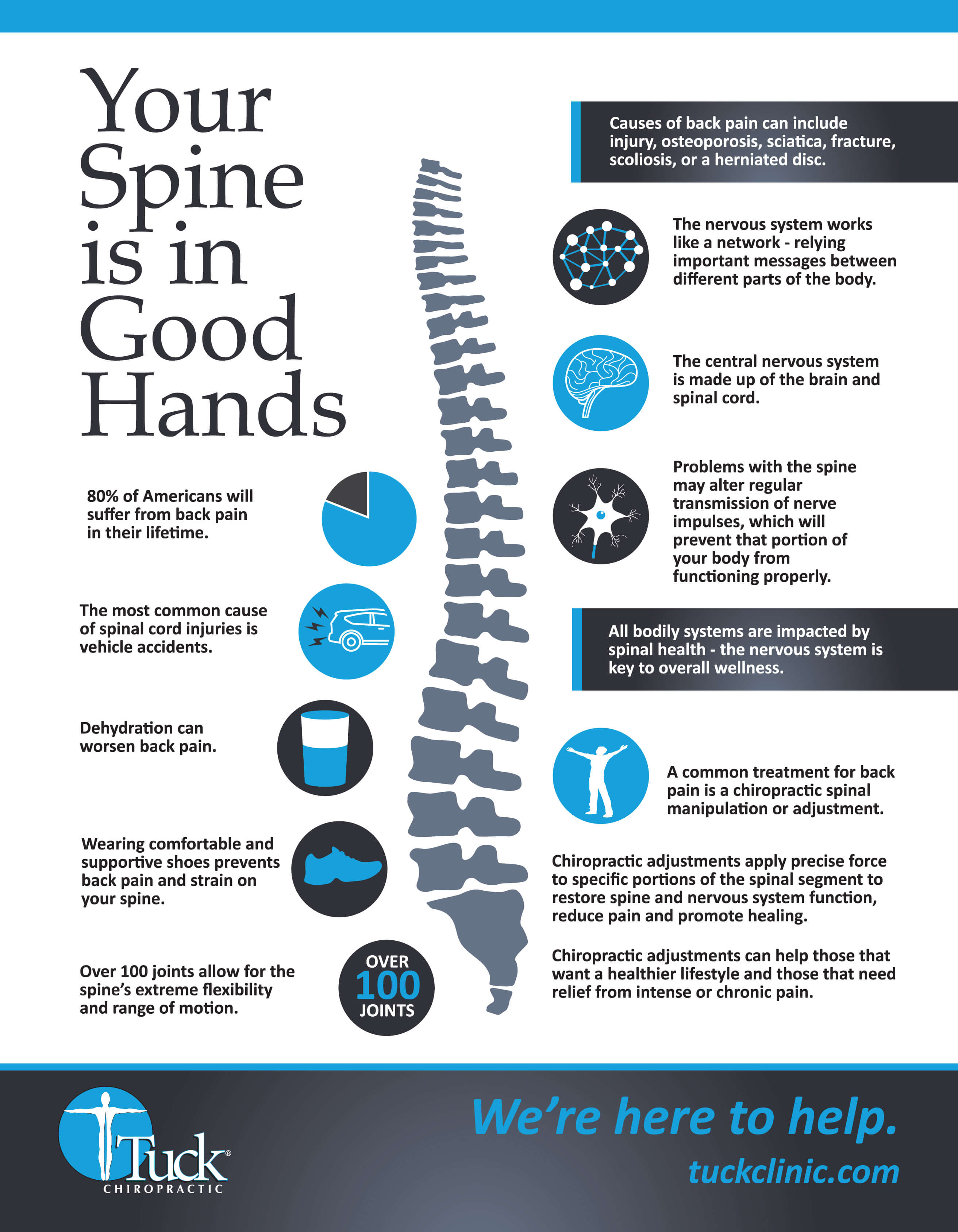Understanding Nutrition'S Function In Back Pain Monitoring: Beneficial Foods And Foods To Avoid
Understanding Nutrition'S Function In Back Pain Monitoring: Beneficial Foods And Foods To Avoid
Blog Article
Write-Up Produced By-Whitley Nicolajsen
When it involves managing your pain in the back, the food choices you make can dramatically impact how you feel on a daily basis. Envision being able to alleviate your pain merely by readjusting what you consume. By comprehending linked resource site of nourishment in pain in the back monitoring and recognizing which foods to incorporate or avoid, you can take positive actions towards a much healthier and more comfortable way of life. The connection in between nutrition and back health and wellness is more profound than you might realize-- allow's check out how certain foods can either calm or intensify your neck and back pain.
Importance of Nutrition in Neck And Back Pain
Nutrition plays a crucial duty in handling pain in the back. Your diet can significantly influence swelling degrees and total discomfort levels in your back. Taking in a balanced diet plan abundant in nutrients like vitamins D and K, calcium, magnesium, and omega-3 fatty acids can help reduce inflammation and reinforce bones, which are essential for back health and wellness.
Furthermore, preserving a healthy and balanced weight with appropriate nourishment can reduce stress and anxiety on your spine, minimizing the danger of back pain.
Furthermore, please click the next website page like anti-oxidants located in vegetables and fruits can aid battle oxidative tension and promote healing in the body, consisting of the back muscular tissues and back.
On the other hand, consuming extreme amounts of refined foods, sweet drinks, and harmful fats can add to inflammation and weight gain, worsening neck and back pain.
Foods to Consume for Back Health
To support a healthy back, incorporating nutrient-rich foods into your day-to-day meals is essential. Consisting of foods high in antioxidants like berries, spinach, and kale can help reduce inflammation in your back, relieving pain and discomfort. Omega-3 fatty acids found in fatty fish such as salmon and mackerel have anti-inflammatory residential properties that can benefit your back health.
Furthermore, consuming nuts and seeds like almonds, walnuts, and chia seeds offers vital nutrients like magnesium and vitamin E, which sustain muscular tissue function and minimize oxidative stress and anxiety. Integrating lean healthy proteins such as poultry, turkey, and tofu can aid in muscle mass fixing and maintenance, promoting a strong back.
Do not fail to remember to consist of milk or fortified plant-based options for calcium to support bone wellness. Lastly, moisturize with lots of water to keep your spine discs moistened and functioning ideally. By including these nutrient-dense foods in your diet regimen, you can nurture your back and assistance total spinal health and wellness.
Foods to Avoid for Back Pain
Select staying clear of refined foods high in sugarcoated and trans fats when seeking remedy for back pain. These kinds of foods can contribute to swelling in the body, which may intensify back pain. Say no to sweet snacks like candy, breads, and sweet drinks, along with junk food items like hamburgers, fries, and fried hen that are typically filled with trans fats.
Furthermore, avoid foods having high levels of refined carbohydrates, such as white bread, pasta, and breads, as they can spike blood glucose degrees and possibly intensify swelling in the body.
It's additionally smart to restrict your intake of foods high in saturated fats, like red meat and full-fat dairy products, as they can add to inflammation. Processed foods like delicatessens meats, chips, and packaged treats are often high in hydrogenated fats and must be eaten in small amounts.
Verdict
To conclude, taking notice of your diet plan and making wise food options can have a considerable effect on handling back pain. By integrating nutrient-rich foods like berries, fatty fish, nuts, and lean healthy proteins, and preventing processed and sugary products, you can help reduce swelling and support overall back health and wellness. Keep in mind, what you consume plays a vital role in how you feel, so make certain to prioritize your nourishment for a much healthier back.
